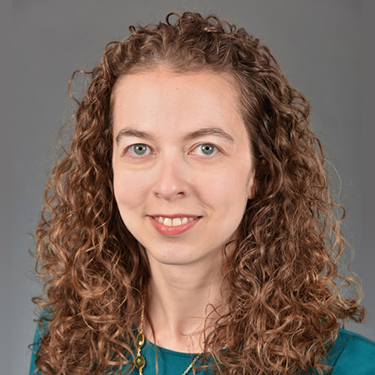Faculty Profile
Anne O’Donnell-Luria, MD, PhD
Attending Physician
Co-Director, Center for Mendelian Genomics, Broad Institute of MIT and Harvard
Rare disease, gene discovery, reference population databases, variant and gene curation.
The O’Donnell-Luria Lab is an integrated team across Boston Children’s Hospital and the Broad Institute of MIT and Harvard, dedicated to finding a diagnosis for every individual with rare disease. Despite significant diagnostic advances, half of patients remain undiagnosed after clinical exome sequencing. The lab focuses on using large-scale genomic and transcriptomic approaches to increasing the rate of rare disease diagnosis through improving rare variant interpretation and empowering the discovery of novel disease genes. She is particularly interested in how we can leverage the Genome Aggregation Database (gnomAD), a massive reference population database, in these efforts. She also studies why only some people with a disease-causing genetic variant will develop symptoms, which is known as incomplete penetrance of genetic conditions.
With Dr. Heidi Rehm, Dr. O’Donnell-Luria co-directs the Broad Center for Mendelian Genomics (CMG), that works with groups at Boston Children’s Hospital and from institutions around the world to sequence thousands of families who remain undiagnosed to increase the rate of gene discovery, using a variety of approaches including exome and genome sequencing, RNA-sequencing, structural variant analysis, and long-range sequencing.
Dr. O’Donnell-Luria is the Director of the EpiChroma Clinic at Boston Children’s Hospital, a specialty clinic for children and adults with known or suspected disorders involving the genes that are important for chromatin formation and regulation. DNA in our cells is packaged into chromatin to fit into our cells and for regulation of which genes are expressed. Pathogenic variants in the genes important for forming chromatin can lead to a number of medical problems due to epigenetic dysregulation. Common medical features may include under or over growth, intellectual disability, behavioral issues, and problems with immune function or limb formation. The diagnosis of a genetic condition can leave families and caregivers looking for more information, which is often hard to find for these rare conditions. Through our coordinated clinical network, we strive to provide a clinic where we can work with families to learn more about these conditions, share knowledge, and develop research studies.
Dr. O’Donnell-Luria sees patients in clinic at Boston Children’s Hospital.
Affiliations
Harvard Medical School
Broad Institute at MIT and Harvard
Massachusetts General Hospital
Publications


